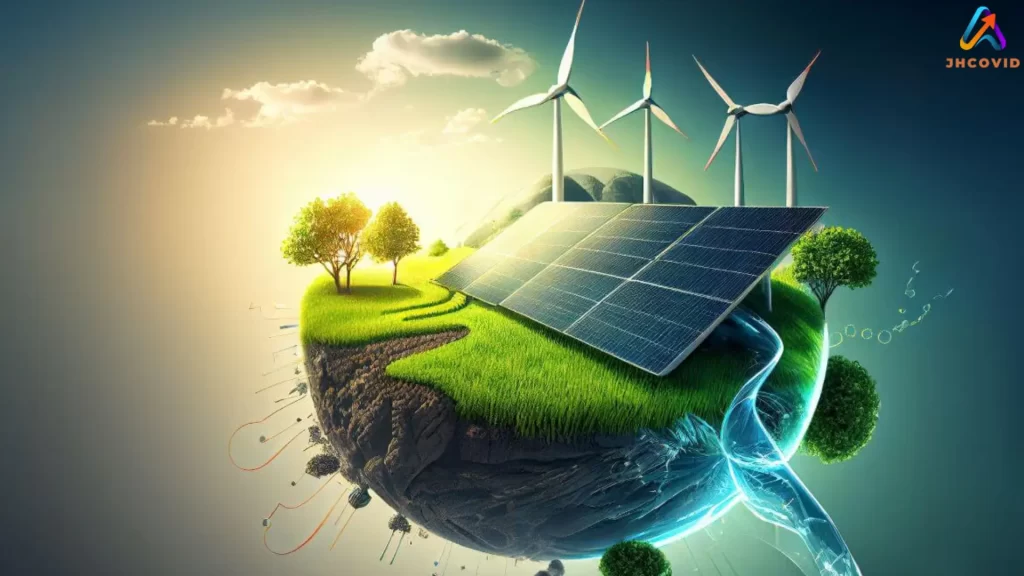Key Takeaways:
- Understanding sustainable energy sources is essential for reducing carbon footprints and combating climate change.
- Discover how innovations and technology are making sustainable energy more accessible and efficient.
- Recognizing the advantages of switching to renewable sources for the environment and the economy.
The future of sustainable energy focuses on renewable sources like solar, wind, and hydro, reducing reliance on fossil fuels. Advances in energy storage, smart grids, and green technologies drive cleaner, more efficient energy solutions.
Governments and industries are investing in sustainable practices, aiming for a low-carbon economy that combats climate change, promotes energy independence, and ensures a healthier environment for future generations.
Why Sustainable Energy Matters Today

The call for a shift from non-renewable to sustainable energy sources has gained unprecedented urgency in today’s rapidly evolving world. Ecosystems and human life are seriously threatened by climate change. As we witness the tangible effects of environmental degradation, we collectively recognize the need for renewable alternatives.
Amidst these global dynamics, efforts such as those by Mpower Energy reflect a growing movement toward adopting sustainable practices. This modification is crucial to reducing greenhouse gas emissions and the impacts of climate change.
Additionally, the proliferation of sustainable energy practices is vital in reducing dependency on depleting fossil fuels, fostering energy security, and driving economic growth by developing green technologies and industries.
The Rise of Renewable Energy Technologies
The exponential growth in renewable energy technologies has marked a pivotal turn in pursuing a sustainable future. Innovations in technology have significantly increased the cost-effectiveness and efficiency of renewable energy sources.
Solar energy, for instance, has seen remarkable advancements in the form of higher-efficiency panels and enhanced storage solutions, allowing for greater energy independence. Similarly, wind energy has benefitted from enhanced turbine designs, which can capture wind resources in a broader range of environments.
These improvements highlight the potential for wide-scale deployment of renewables. According to the United Nations, the continual evolution of energy technologies will play a foundational role in transitioning to low-carbon economies, reinforcing the sustainable energy narrative.
Economics of Sustainable Energy
Sustainable energy is not only environmentally friendly but also offers economic benefits. Renewable energy installations often have lower operational and maintenance costs than fossil fuels, providing financial stability. Eliminating fuel costs and offering energy credit incentives further enhance economic viability.
Renewables offer a reliable solution for consistent energy pricing, safeguarding economies from price shocks as fossil fuel reserves decline and prices become volatile. These factors make sustainable energy a compelling economic choice.
Sustainable Energy in Everyday Life
The adoption of sustainable energy solutions is transforming daily lives. As more households incorporate solar panels and other renewable energy technologies, individuals experience direct benefits. Residential areas are becoming self-sufficient in energy generation and substantially reducing their monthly utility bills.
These technologies empower individuals to produce and consume their clean energy, contributing to a broader culture of sustainability. Switching to solar energy might result in significant long-term savings for homes, according to research from the National Renewable Energy Laboratory (NREL).
This lifestyle choice transcends personal gain by promoting environmental stewardship and inspiring others within communities to consider sustainable alternatives.
Government and Corporate Initiatives
Government policies and corporate initiatives are crucial in promoting sustainable energy. Governments provide tax breaks, subsidies, and other incentives to promote infrastructure development and investments in renewable energy.
This helps lower costs and encourages the sector’s expansion. Corporations also commit to achieving net-zero emissions, aligning with shareholder interests and social responsibilities. This collective commitment to a sustainable future fosters innovation and uptake of sustainable energy practices, fostering a fertile ground for sustainable development.
Challenges and Solutions in the Shift to Renewables
Transitioning to sustainable energy sources presents challenges like infrastructure requirements, high upfront costs, and technological barriers. However, these can be overcome through collaborative efforts, targeted investments, and supportive governmental policies.
Focusing on energy system integration, research, and international cooperation can make the transition to renewable energy mainstream, making sustainable solutions more accessible and affordable.
The Impact on the Environment
The transition to renewable energy sources offers significant environmental benefits, including reduced greenhouse gas emissions, combating global warming, reducing air pollution, and conserving natural resources. This shift improves air and water quality, preserves biodiversity, and protects ecosystems.
Prioritizing renewable solutions can lead to a more sustainable and balanced energy consumption approach, contributing to our planet’s health.
Also Read: 15 Best Solar Panel Brands to Consider in 2024
Looking Ahead: What the Future Holds
The future of sustainable energy is undeniably bright. Technological advances and growing international commitment are paving the way for significant energy production and consumption advancements. As more nations, businesses, and individuals embrace the concept of a greener tomorrow, we are poised to forge a future that aligns economic growth with environmental sustainability.
By breaking away from traditional energy dependencies and exploring renewable alternatives, society can ensure a healthier planet for future generations. The momentum is clear—sustainable energy will be the cornerstone of a balanced approach to future development.






